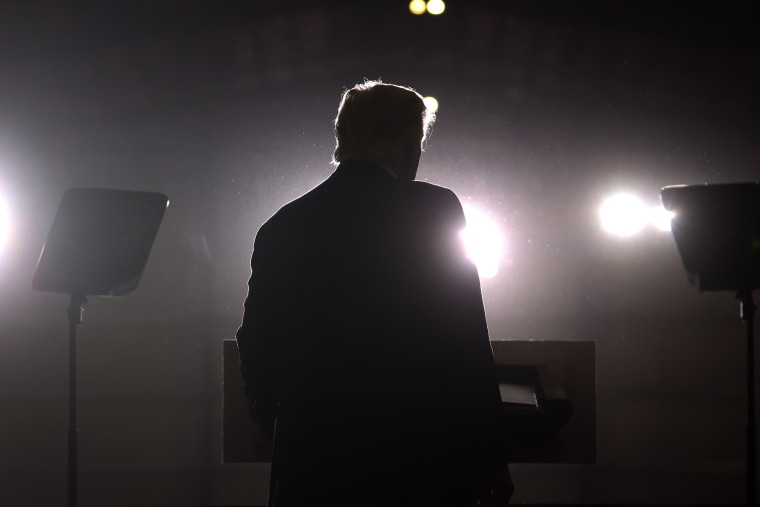Sen. Lindsey Graham sat down with Fox News’ Sean Hannity last week, and the host asked whether he believes federal prosecutors are trying to “prevent Donald Trump from running for president in 2024.” The senator didn’t hesitate.
“Absolutely,” the South Carolina Republican responded. “What other conclusion could you reach?”
The rhetorical question struck me as amazing, because in Graham’s mind, his conspiracy theory isn’t just plausible, it’s obvious. To hear the senator tell it, of course those rascally federal prosecutors are trying to prevent the former president from running. Sure, some might point out that indicting Trump doesn’t stop him from running, which effectively debunks Graham’s claim. And sure, the charges appear to be based on a lengthy and methodical investigation that produced voluminous amounts of incriminating evidence. But isn’t it easier to simply embrace the idea of Justice Department officials interfering in the election?
Trump himself has embraced this conspiracy theory with unnerving enthusiasm. After his third indictment was unsealed, the Republican’s campaign team issued a written statement that read in part:
“[W]hy did [prosecutors] wait two and a half years to bring these fake charges, right in the middle of President Trump’s winning campaign for 2024? ... The answer is, election interference!”
The former president has pushed the same line by way of his social media platform over and over and over again. But the repetition of the claim has not made it any more accurate.
In broad strokes, it’s a relatively straightforward allegation: Team Trump and its allies believe the Justice Department waited two-and-a-half years in order to file “fake” charges, in the hopes of derailing the Republican’s candidacy. This, the argument goes, constitutes “election interference.”
But this is deeply odd. Right off the bat, prosecutors didn’t file the case in early 2021 because it took time to conduct a thorough investigation, collect evidence, hear from witnesses, and work through the grand jury process. This isn’t evidence of a conspiracy; it’s the opposite.
What’s more, as the latest indictment makes clear, there’s nothing “fake” about the charges.
Just as notably, if prosecutors, motivated by partisan goals and electoral considerations, were trying to unveil the allegations at a politically opportune moment, they probably wouldn’t have filed the indictment in early August — roughly five months before the Iowa caucuses, seven months before Super Tuesday, 11 months before the Republicans’ nominating convention, and than 15 months before the next general election.
Mary McCord, an MSNBC legal analyst and a former federal prosecutor, added in a piece that’s well worth your time, “If the DOJ was weaponizing its investigative powers for political purposes, surely it would not be giving Trump the fodder to gain media attention and raise enormous sums for his 2024 presidential campaign.”
Indeed, the entire reasoning behind the talking point is difficult to wrap one’s head around: Earlier charges against the former president helped him solidify intra-party support and gave him a significant fundraising boost. So we’re to believe that prosecutors brought new charges as part of a secret scheme to undermine his candidacy?
If members of Team Trump are looking for arguments as part of a persuasive defense, they’ll have to look elsewhere.

